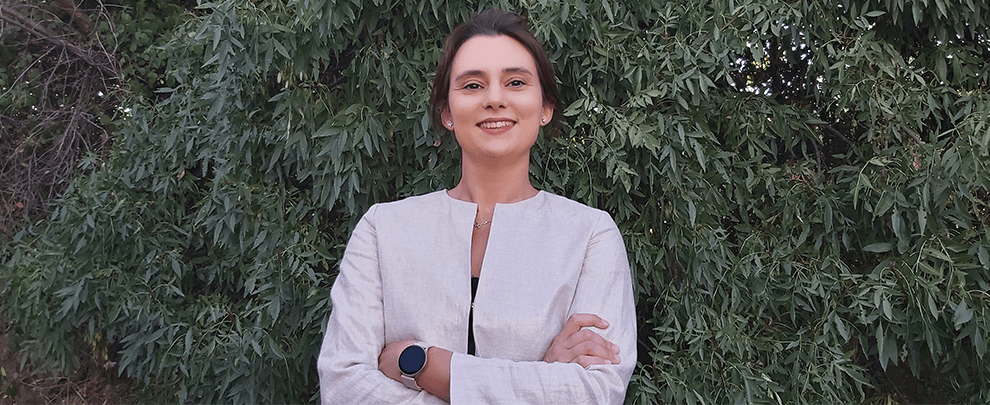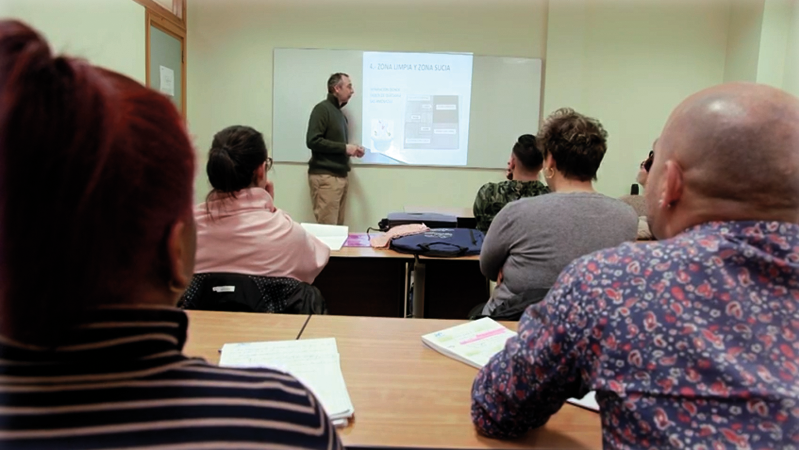Blog
Blog

I + Porc, Spanish cluster of pig producers
15th October 2020 - News
A year after its creation, i+Porc, the Spanish cluster of pig farmers, has developed several actions to improve the competitiveness of a key sector in the Spanish economy. To learn more about this association, we spoke with its manager, Alba García.
How did the possibility of creating the i+Porc cluster arise?
The i+Porc seed was a proposal by the Government of Aragon to the sector for Aragon to have an autonomous pig cluster, since in this community there are excellent experiences in collaborative work through clusters in key sectors of the economy. However, the sector quickly saw that by its structure and size that it had to bet on a national cluster that would bring together pig production from all over the country. In this way, i+Porc, the Spanish Cluster of Pig Winners, was established in late 2018 as a private entity and began to be operational in 2019 to improve the associated companies’ competitiveness through cooperation and innovation, giving effective responses to the challenges of the sector. The participating companies’ activities, complemented by the promotion of innovation and joint research, are the fundamental tools for that from i+Porc favours the increase in productivity and the industry’s general sustainability.
What are the cluster’s objectives or lines of action?
i+Porc aims to place Spanish pig production at the global forefront, putting the focus on sustainability, animal welfare, innovation, efficiency and technification, so that the sector is recognized internationally as a sustainable, dynamic, modern, innovative, efficient, safe sector and of quality. The cluster allows its partners to have access to specialized resources, to promote employment and training professionals in the sector, develop R + D + i programs, promotes multidisciplinary collaboration between various institutions, etc. always acting as a coordinator between industrial partners and the scientific-technical and educational communities.
Who is part of i+Porc?
At i+Porc we have two types of partners: pig and technological livestock producers (knowledge providers, priorities in the innovation projects that we promote from the cluster); our collaborators are also members of the cluster (the rest of the service companies that participate in the production process. The only difference between the partners and the collaborators is that the latter does not have a vote in the assembly.
What does it entail to be part of the cluster?
Regarding the advantages of belonging to the cluster, we understand that, on the one hand, it is activation and linkage engine between the different actors in the industry, which facilitates contact between companies and other agents in the same business to take advantage of the sector’s transversality; It is also a means of accessing common interest projects, both at a national, European and international level; it must collect and identify market trends and needs, broaden the company's vision of the business, etc.
The only formal obligation involved in belonging to a cluster is to be aware of the quota; however, the spirit of this innovative and collaborative work is to make partners as active as possible and to participate in work assignments.
Among the actions carried out from i+Porc, a job creation project was developed, in collaboration with the Red Cross. What did it consist of?
This collaboration is included within the collaboration framework between the Zaragoza Red Cross and the program "Social Business Challenge - Alliances for Labor insertion. It was a pioneering pilot project in Spain, which sought to improve the employability of people with greater difficulties, participants in social intervention programs, intending to improve this group’s social integration possibilities through their labour insertion in the pork sector. The objective was to offer them a specific and valuable training plan, as well as carrying out non-labour practices whose result was the employability improvement and, therefore, facilitated the professional insertion of students in an innovative and growing sector. This initiative was developed in Ejea de Los Caballeros (Aragon), where 16 people started; 9 approved the theoretical-practical part and all ended with an option to enter the labour market. The success of the program has led us to the fact that the collaboration agreement with the National Red Cross has already been signed to extend this project to other communities.

Image of the labor insertion project carried out together with the Red Cross. Photo: i + Porc.
On the other hand, in Aragon, they plan to launch a cycle of Dual FP of Agricultural Production specialized in pigs. What purpose do you offer this training for?
These actions are framed within the strategic line of i+Porc, to work and lead the improvement of the professionalization of the sector. The proposal for this training arises from the sector’s need to have qualified and specialized workers. Today, there is no regulated training that responds homogeneously to the needs of the work on modern farms. Until now, the training effort was assumed internally by companies. This course will not only be economically recognised, through an associated scholarship, equivalent to the interprofessional minimum wage but will also provide an official degree to the students. In short, it is about bringing the pig sector closer to young people, making them know it and awakening vocations. The Dual FP allows general training in the centre and updated, specialized and top-quality complementary training in companies. This project of Dual FP “Agropecuario de Grado Medio” already started last year in Ávila, this course will start in Aragón and the idea is to extend it to other communities in the 2021-2022 academic year.
What are the challenges of the sector in which i+Porc is working?
From i+Porc we intend to respond to the challenges that arise in pork production through innovation and collaborative work. Our task is developed from the work commissions that we have defined according to our strategic plan: in the innovation commission we are dedicated to everything related to new installations, technification, digitization, etc. sustainable and precision nutrition and animal health maintenance in the face of different threats; regarding environmental duty, the biggest challenge is sustainability and efficiency in slurry management and, as we mentioned, the employment and training commission works for the sector’s professionalization as a tool to improve its reputation.






